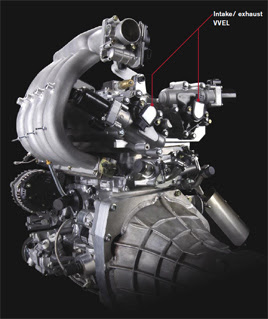High limit charge compression ignition is another innovation for fuel burning utilized on a more limited size presently, yet will before long be in wide utilize and be supplanting gas and diesel totally. The HCCI framework utilizes a solitary energy unit with various tempered steel injectors for each office of the motor. The HCCI injector creates a consistent stockpile of blended fuel as the gas goes through the injectors. At the point when the touched off fuel interacts with the sparkle plug, it makes a flash which lights the compacted blend.
In homogeneous charge compression ignition, all around blended fuel and oxidizer (normally air) are compacted to the mark of auto-ignition. Injector burners (in many applications tempered steel) are associated with the injector chambers by a long hose and oxygen tanks are incorporated to supply oxygen to the ignition chamber. At the point when the temperature of the infused gas and the oxygen get close to the ignition temperature, the Si motor turns over and runs ceaselessly in light of the fact that it has no inside burning chamber. When the temperature turns out to be consistent, the Si motor close off and the fuel blend is compacted again in a non-burning chamber.
Homogeneous charge compression ignition assists with diminishing outflows from the fuel and air. HCCI motors can work at diesel-like compression proportions. The principle thought behind HCCI is that the blending of gas and diesel fuel creates a higher temperature and higher measures of fume and gases than would be gotten by utilizing conventional flash ignition measures. A significant advantage of HCCI is that the motor needn't bother with any ignition source at the earliest reference point of the energizing system to turn over the motor. HCCI likewise extraordinarily lessens the mileage on the current motors by killing the ignition flash attachments, burning chambers, and air guide siphons. Such benefits have prompted expanding reception of HCCI. For example, in Japan, Mazda offers homogeneous charge compression ignition in Mazda 3 vehicles.




No comments:
Post a Comment